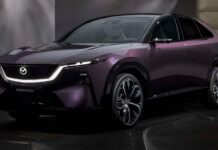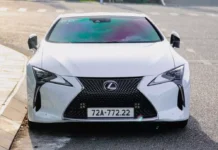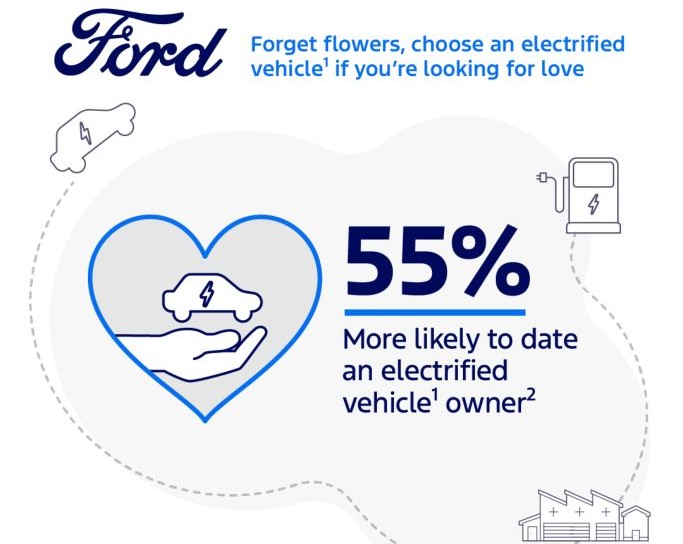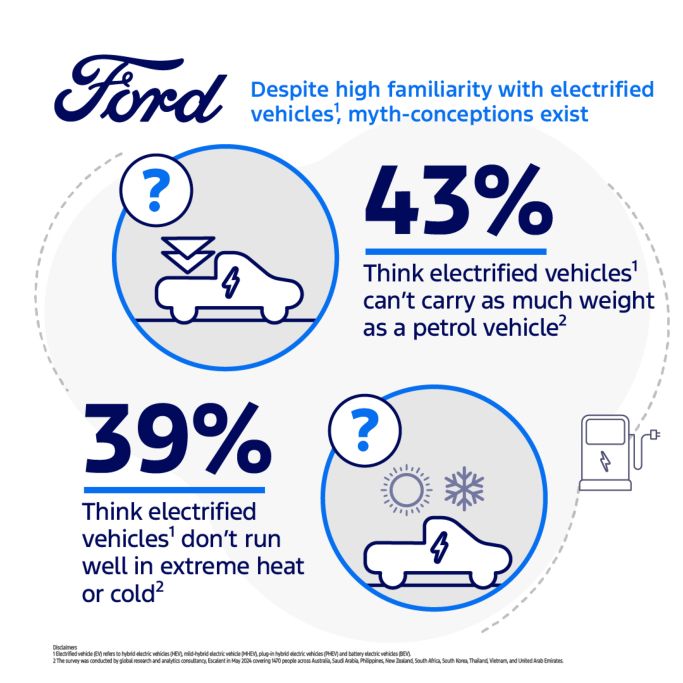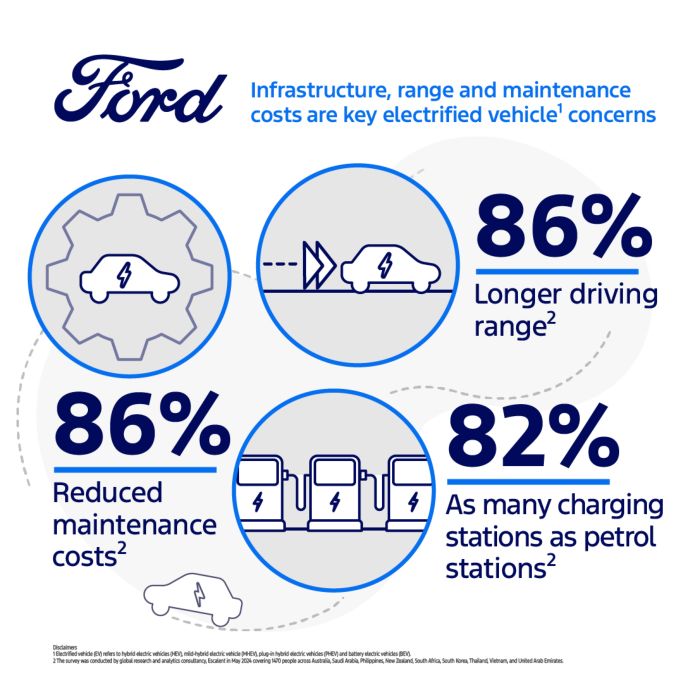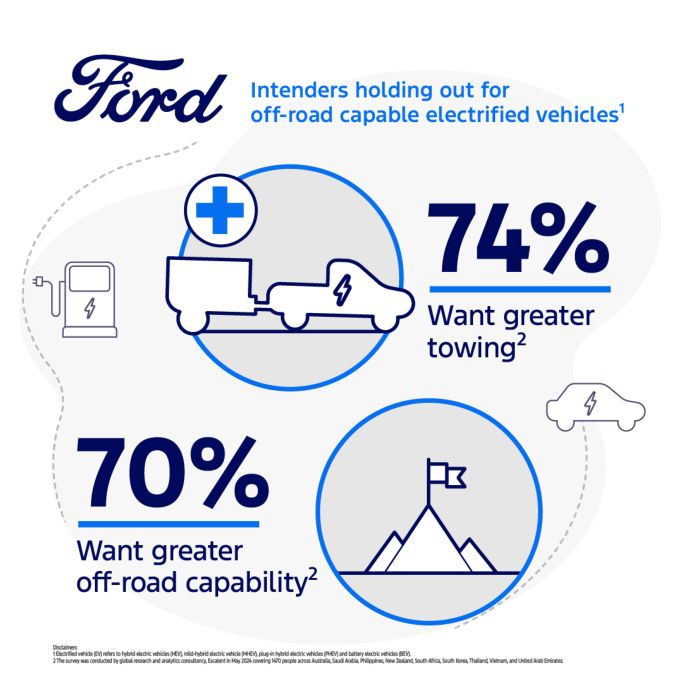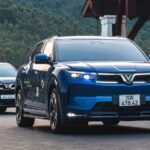According to a recent survey by Ford Motor Company, a majority of drivers in the region are considering purchasing electric vehicles, with a preference for hybrid technology.
Ford’s research indicates that people across multiple countries are interested in electric vehicles and supportive of businesses using them. However, concerns remain about charging infrastructure and battery longevity. Here are some key trends from the study:
Familiarity with Electric Vehicles: Two-thirds of the survey respondents categorized electric vehicles as “fun to drive,” “cool,” “sporty,” and even “easy to own.” Moreover, two-thirds of the respondents shared that their perception of electric vehicles has become more positive over the past year, mainly due to environmental benefits. Nearly 50% of those surveyed have ridden in an electric vehicle, with 35% having test-driven one.
Preferred Type of Electric Vehicle: In all surveyed markets except Thailand, respondents chose hybrid electric vehicles (HEV) as their top choice if cost was not a factor, followed by plug-in hybrid electric vehicles (PHEV) and then battery electric vehicles (BEV).
First Impressions: A majority of the respondents indicated that they would be more inclined to date someone who drives an electric car. More than 3/4 of the participants from South Africa, Thailand, the Philippines, Vietnam, and the UAE shared that they would choose an electric car over an internal combustion engine vehicle to make a good first impression. In contrast, only 57% of Australians and 48% of New Zealanders agreed with this statement.
Positive Emotions: More than half of the survey respondents described electric vehicle owners as environmentally conscious, progressive thinkers, and tech-savvy. Additionally, 61% stated that they intend to purchase an electric vehicle.
Electric Vehicles in Daily Life: Most of those surveyed agreed that they would prefer to use electric vehicles for deliveries or as service vehicles and that they would also favor them for their daily commutes.
Electricity Costs: While most participants agreed that electric vehicles save costs by eliminating the need for gasoline or diesel, Australia diverged from this trend. Sixty percent of Australians believed that charging an electric vehicle at home would increase their electricity bills to an extent comparable to the fuel costs of an internal combustion engine vehicle.
Charging Stations: A majority of the respondents selected service stations as the ideal location for public charging services, followed by shopping centers and office buildings.
Infrastructure: Many survey participants lacked information about public charging stations near their residences. Forty-five percent of those surveyed in South Africa were unaware of any charging stations within a 20-kilometer radius of their homes, while shopping centers were deemed the most suitable locations for charging stations.
Performance Needs: Gas and diesel vehicles remain preferred for enduring harsh conditions, towing, or off-roading. However, most respondents shared that they would be more inclined to purchase electric vehicles if they performed better in off-road conditions and had improved towing capabilities. Some respondents also worried that electric vehicles might not be able to carry as much luggage or cargo as their internal combustion engine counterparts.
Barriers to Purchase: More than 3/4 of the respondents believed that electric vehicles are as safe as internal combustion engine vehicles in the event of a collision. However, more than 1/4 expressed concerns about electric vehicles’ performance in extreme temperatures and the potential for charging station malfunctions. They indicated that they would be more likely to purchase electric vehicles if improvements were made in terms of operating range, reduced long-term maintenance costs, and the development of charging infrastructure. Battery lifespan was also a significant concern.
A Ford representative stated, “Ford is committed to delivering the powertrains our customers want. As Ford launches more electric vehicles in more markets, this research helps us understand and address consumer concerns. From the Mach-E, Escape PHEV, and E-Transit to the upcoming Ranger PHEV, Ford offers a diverse range of electric vehicles to meet various needs for performance, family-friendliness, or robust towing capabilities.”
“Vinfast Delivers 200 Vehicles to Ngân Lực Company: A Testament to Their Commitment to Quality and Innovation”
NIAD (Công ty Cổ phần Đầu tư và Phát triển Ngân Lực) has taken a significant step towards promoting green transformation by signing a memorandum of understanding with VinFast, FGF, and V-Green. This strategic collaboration aims to foster a sustainable future and drive eco-friendly initiatives in Vietnam and beyond.


